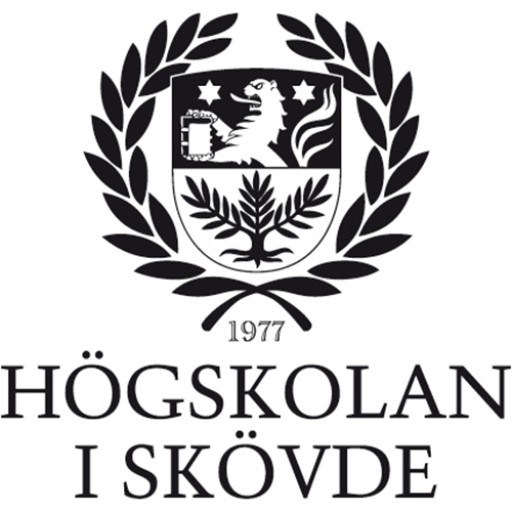Photos of university / #universityofgothenburg
The Bachelor's Programme in Music at the University of Gothenburg offers students a comprehensive and in-depth education in the art and science of music. This programme is designed for individuals who are passionate about developing their musical abilities, gaining a broad understanding of music theory, history, and practice, and preparing for professional careers within the diverse field of music. Throughout the programme, students engage in a balanced curriculum that combines musical performance, composition, musicology, and music technology, allowing them to explore various aspects of the discipline and discover their particular interests and strengths.
The programme emphasizes practical skills and artistic development through individual and ensemble performances, workshops, and masterclasses led by experienced educators and professional musicians. Students have access to excellent facilities, including well-equipped practice rooms, recording studios, and performance venues. In addition to performance skills, students learn about the cultural and historical contexts of music, with courses that cover a wide range of genres and traditions from classical to contemporary, ensuring a well-rounded musical education.
Academic coursework is complemented by opportunities for internships, collaborative projects, and participation in concerts and festivals, providing real-world experience and network-building within the music industry. The programme encourages creativity, critical thinking, and innovation, preparing graduates for careers as performers, composers, music educators, researchers, or entrepreneurs in the music sector. Students are supported by dedicated faculty members who foster individual artistic development and scholarly inquiry.
The Bachelor's Programme in Music at the University of Gothenburg is ideal for motivated students aiming to deepen their musical knowledge, enhance their technical skills, and gain practical experience in a vibrant and inspiring environment. Upon completion, graduates are equipped with the artistic, theoretical, and professional skills necessary to pursue further studies or enter the workforce confidently. The programme’s interdisciplinary approach and close ties to the local music scene create a dynamic learning environment that nurtures future music professionals and enthusiasts alike.
Major (90 HE credits). Your major (main instrument) is obviously a key part of your education. Instruction is given both individually and in the form of seminars, lectures, workshops, and forums. The school also frequently hosts prominent guest conductors and musicians. If you play an orchestral instrument, you will also work with teachers in musical rehearsal, pianists, throughout your studies. Within the framework of the major, you will also take part in ensemble performances as part of a chamber orchestra, brass ensemble, percussion ensemble and the new music ensemble, all of which include regular concert performances. The new music ensemble works with 20th and 21st century repertoires in close cooperation with the composition programme at the Academy of Music and Drama.
Independent Project (degree project) bachelor (15 HE credits). The last two semesters of your education include completing your independent project (degree project).
Chamber Music, Ensemble and Orchestra (51 HE credits). In the chamber music module, you participate in chamber music ensembles taught by experienced chamber music instructors. Musical communication and recording technology are integrated into chamber music module.
Music Theory (12 HE credits) The music theory courses integrate working with note writing software.
Practical Ear Training (6 HE credits)
The History of Classical Music, an Introductory Course (4.5 HE credits)
The World of a freelance Musician (1,5 HE credits)
General entrance requirements for university studies and special qualifications in the form of musical skills. Such skills will be assessed using entrance examinations.
The financing of the Music program at the University of Gothenburg is primarily based on a combination of government funding, student fees, and scholarships. As a publicly funded university in Sweden, the University of Gothenburg benefits from support provided by the Swedish national government, which allocates resources to higher education based on strategic priorities and student enrollment figures. This funding ensures that the core aspects of the program, including faculty salaries, building maintenance, and academic resources, are sustainably financed.
Students entering the program can apply for various scholarships and financial aid options offered by the university and external organizations. The Swedish government provides financial support for students who meet certain eligibility criteria, including the Swedish study support (CSN), which offers loan and grant options to both domestic and international students. International students, particularly those from within the European Union/European Economic Area, may be eligible for tuition fee exemptions or reduced fees, depending on bilateral agreements and university policies.
In addition, the program may offer specific scholarships aimed at talented musicians or students demonstrating financial need. These scholarships often help cover tuition fees, living expenses, or specialized courses and workshops. External funding sources, such as grants from arts councils or private foundations, may also supplement the financing, especially for project work and performances integral to the program.
The university emphasizes transparent and structured financial planning to ensure that students can focus on their studies without undue financial burden. Students are encouraged to explore all available financial aid options early in their studies to secure funding for their educational and artistic pursuits. Overall, the financing system at the University of Gothenburg’s Music program seeks to balance public funding, individual contributions, and external support to provide a comprehensive educational experience.
The Bachelor’s degree program in Music at the University of Gothenburg offers students an in-depth education in the art, theory, and practice of music. The program is designed to provide a comprehensive understanding of musical disciplines, including performance, composition, music theory, music history, and music technology. Students have the opportunity to develop their individual musical skills through practical performance training and individual supervision, as well as to deepen their analytical skills through coursework in musicology and related fields.
The program emphasizes both practical and academic aspects of music, encouraging students to explore various genres, styles, and cultures. It prepares students for careers in performance, teaching, composing, music production, or further academic studies in music. Students are also facilitated to participate in concerts, workshops, and collaborative projects, enriching their practical experience and professional readiness.
The curriculum typically includes core courses in music theory and history, as well as specialized courses tailored to individual interests, such as jazz, classical, contemporary, or world music. Practical training is supported by access to excellent facilities, including rehearsal spaces, recording studios, and performance halls. The program also promotes a holistic understanding of music's role in society, fostering critical thinking, creativity, and cultural awareness.
The duration of the program is generally three years for a Bachelor’s degree, culminating in a final project or thesis that demonstrates the student’s artistic and academic development. The program is delivered in English, attracting students from diverse backgrounds, and often offers opportunities for exchange studies and internships to enhance practical experience and international networking.
Graduates of the Music program at the University of Gothenburg are equipped with both the artistic skills and theoretical knowledge necessary to pursue professional careers in the music industry or continue their studies at the Master’s level. The university’s active musical community and collaborations with local orchestras, ensembles, and cultural institutions provide students with valuable real-world experiences. Overall, the program aims to nurture innovative, skilled, and knowledgeable musicians who can contribute creatively and professionally to the cultural landscape.



